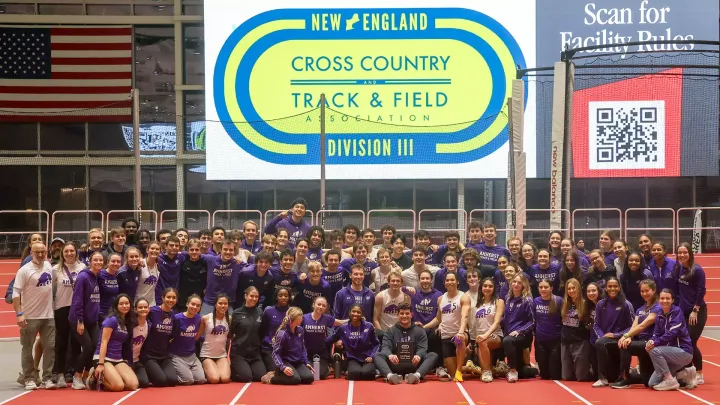MLB Moves All-Star Game Due to Controversial Georgia Voting Law
On April 2, Major League Baseball (MLB) announced that its 2021 All-Star Game will no longer take place in Atlanta, Georgia after the state passed a controversial voting law last month. Coors Field in Denver, Colorado was later named as the replacement location for the game, which will still be held on its original date of July 13.
Georgia Senate Bill 202, the Republican-sponsored bill at the center of the controversy, introduces new restrictions on mail-in voting, shortens the time for runoffs and provides the State Election Board with greater power to intervene in county election offices. It also makes it a misdemeanor to hand out any “gifts” — including food and drink — to anyone standing in line to vote. The law has drawn a substantial outpouring of criticism, primarily from Democrats and civil rights groups, on the basis that it makes it harder for people to vote. It has also been suggested that the restrictions will disproportionately affect Black voters. In an interview with ESPN, President Joe Biden called the law “Jim Crow on steroids” — a scathing comparison to laws enforcing racial segregation during the 19th and 20th centuries. Proponents of the law argue that it does not constitute voter suppression and will make elections more secure and accessible.
In a statement announcing the decision, MLB Commissioner Rob Manfred said: “Major League Baseball fundamentally supports voting rights for all Americans and opposes restrictions to the ballot box.” He noted that the move from Georgia to Colorado was inspired by “thoughtful conversations” with teams and players alike. Although the game was moved from Atlanta, Manfred assured that legendary Braves slugger Hank Aaron, who passed away in Atlanta in January, would still be celebrated during the All-Star festivities.
Georgia Governor Brian Kemp openly shared his disdain for the MLB’s decision, stating in a news conference that the MLB had “caved to fear and lies from liberal activists.” He continued, “I want to be clear: I will not be backing down from this fight. We will not be intimidated, and we will also not be silenced.” Kemp also reportedly remarked that the move would hurt minority-owned businesses.
The Atlanta Braves, who had been set to host the All-Star Game in Truist Park, the team’s home stadium, expressed their disappointment in a statement posted to Twitter. “This was neither our decision, nor our recommendation, and we are saddened that fans will not be able to see this event in our city. … Unfortunately, businesses, employees and fans in Georgia are the victims of this decision,” the statement read.
The MLB’s announcement did garner praise from a significant segment of the sports world. A number of sports figures — including Lakers superstar LeBron James, Cubs outfielder Jason Heyward and Dodgers manager Dave Roberts — endorsed the removal of the game from Georgia. Roberts, who is set to manage the National League All-Star team, said, “I think in a world now where people want and need to be heard — and in this particular case, people of color — for Major League Baseball to listen and do something about it, to be proactive, it sets a tone.”
The MLB’s decision to move the game came on the same day that executives at nearly 200 prominent companies — including Microsoft, PayPal, Twitter and Uber — released a joint statement condemning policy initiatives that make voting more difficult. “We call on elected leaders in every state capitol and in Congress to work across the aisle and ensure that every eligible American has the freedom to easily cast their ballot and participate fully in our democracy,” the statement read.
The MLB’s decision is not the only instance of a significant move out of Georgia as a result of the voting law. Will Smith and director Antoine Fuqua announced that their upcoming film production “Emancipation,” a historical drama about a man who escapes slavery and joins the Union Army during the Civil War, will no longer be filmed in Georgia. The pair stated, “We cannot in good conscience provide economic support to a government that enacts regressive voting laws that are designed to restrict voting access.” It remains to be seen whether the announcement will inspire other productions to leave the state.
While the MLB opted to move its All-Star Game out of Georgia, another prominent athletic competition, professional golf’s Masters Tournament, was still held from April 8 to 11 in its typical location: Augusta National Golf Club in Augusta, Georgia. In the tournament, Japanese golfer Hideki Matusyama beat out American runner-up Will Zalatoris to claim his first victory in a major tournament. However, before it began, there was at least some question of whether the tournament would be held in its iconic home course. At least one notable civil rights group, the National Black Justice Coalition, called for the Masters to be moved in response to the Georgia voting law. President Biden, who endorsed the MLB’s move, said it was “up to the Masters” to decide whether the tournament should be moved out of Georgia.
Unlike the MLB All-Star Game, which is held in a different city each year, the Masters’ brand is inextricably tied to Augusta, which would make an out-of-state move potentially far more detrimental to the event’s success. The fact that the Masters was set to begin just two weeks after the Georgia law was passed (compared with approximately a four-month gap for the MLB All-Star Game) would have also compounded the difficulty involved in moving the tournament.
In any case, the MLB’s decision to move the All-Star Game is emblematic of a broader trend in professional sports: athletes, teams and leagues are increasingly using their influence to effect social and political change. Former NFL quarterback Colin Kaepernick made waves in 2016 when he began kneeling during the national anthem as a form of protest against police brutality and racial injustice. Kaepernick, who started for the 49ers for five years, hasn’t been on an NFL roster since 2017, which has led many to suggest that he has been blackballed from the NFL due to his activism. But in the past few years, social and political activism within sports have become increasingly less taboo, allowing players to openly voice their perspectives and bring about change (see the Atlanta Dream’s ousting of Kelly Loeffler). While it is unclear whether the MLB’s decision to move the All-Star Game will lead to more concrete change, one thing is certain: professional athletes will not be content to “shut up and dribble” — or bat and pitch, for that matter.





Comments ()